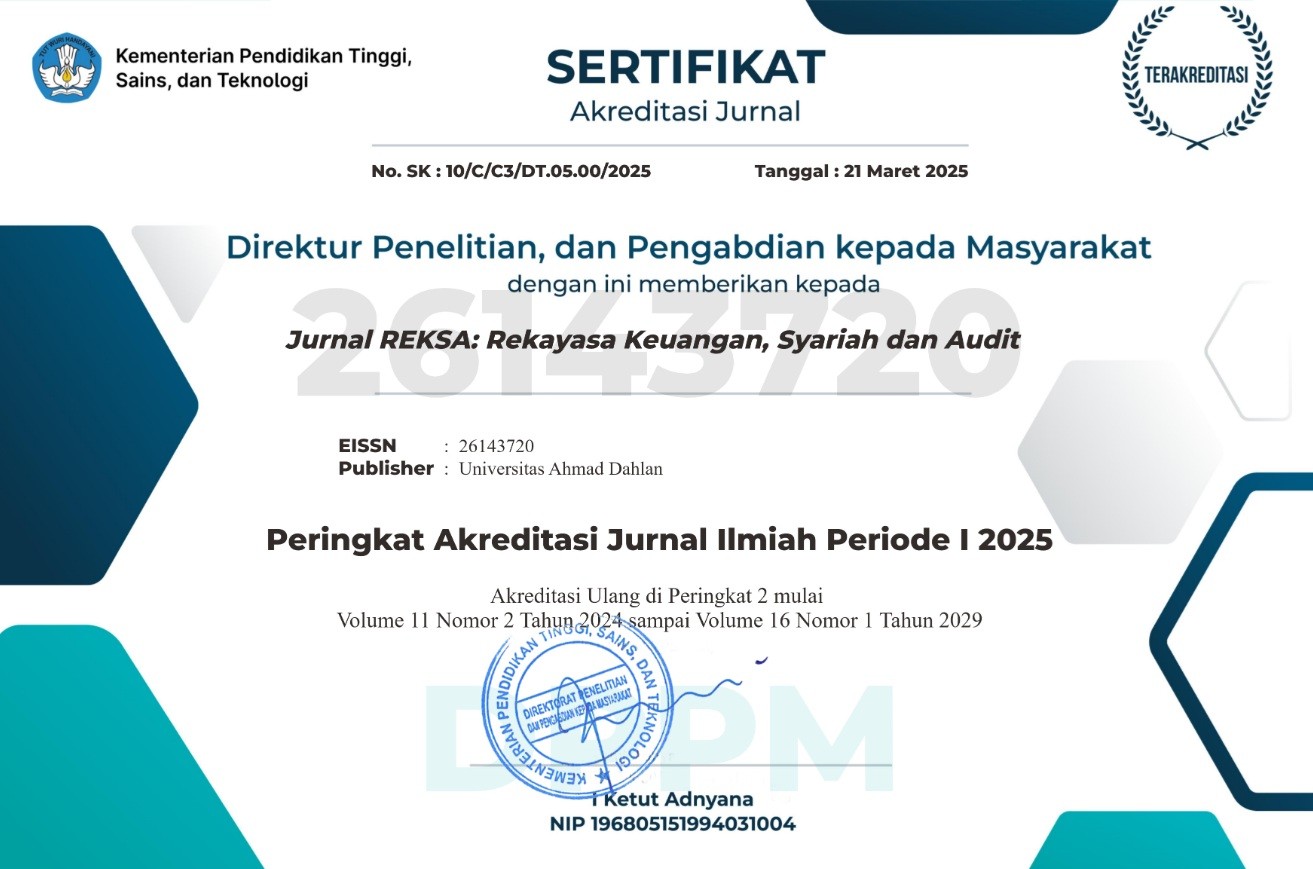PENGARUH LOVE OF MONEY DAN IKLIM ETIS ORGANISASI TERHADAP MANAJEMEN LABA: STUDI EKSPERIMENTAL
DOI:
https://doi.org/10.12928/j.reksa.v5i1.156Keywords:
love of money, organizational ethical climate, earnings managementAbstract
This study is a 2x2 experiment which aims to test the effects of love of money and the ethical climate of the organization on earnings management. This study used 64 students of Master of Accounting. The student decisions represent manager’s belief on performing earnings management when organizational ethical climate and love of money were presented. ANOVA test results indicate that the degree of love of money affects manager’s belief to perform earnings management, organizational ethical climate affects manager’s belief to perform earnings management, and the influence of love of money interact with ethical climate of organization on the manager’s belief to perform earnings management. Thus, all of hypotheses in this study are supported.Downloads
Published
2018-07-21
How to Cite
Wardana, L. K. (2018). PENGARUH LOVE OF MONEY DAN IKLIM ETIS ORGANISASI TERHADAP MANAJEMEN LABA: STUDI EKSPERIMENTAL. Jurnal REKSA: Rekayasa Keuangan, Syariah Dan Audit, 5(1), 32–44. https://doi.org/10.12928/j.reksa.v5i1.156
Issue
Section
Articles
License
Authors who publish with JURNAL REKSA agree to the following terms:
- Authors retain copyright and grant the JURNAL REKSA right of first publication with the work simultaneously licensed under a Creative Commons Attribution License (CC BY-SA 4.0) that allows others to share (copy and redistribute the material in any medium or format) and adapt (remix, transform, and build upon the material) the work for any purpose, even commercially with an acknowledgment of the work's authorship and initial publication in JURNAL REKSA.
- Authors are able to enter into separate, additional contractual arrangements for the non-exclusive distribution of the journal's published version of the work (e.g., post it to an institutional repository or publish it in a book), with an acknowledgment of its initial publication in JURNAL REKSA.
- Authors are permitted and encouraged to post their work online (e.g., in institutional repositories or on their website) prior to and during the submission process, as it can lead to productive exchanges, as well as earlier and greater citation of published work (See The Effect of Open Access).




